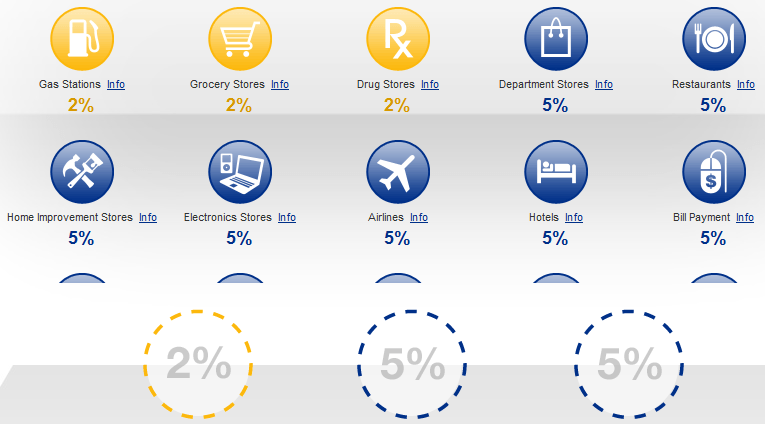U.S. Bank Cash+™ Visa Signature® Card
How the Cash+ card makes cash back flexible
Each quarter you are allowed to select your cash back categories. You select two 5% cash back categories (Department Stores, Restaurants, Airlines...) and one 2% cash back category (Gas Stations, Grocery Stores, Drug Stores). The remaining categories earn 1% cash back. Check here to see how easy it is.
Icing on the cake
Based on what I have talked about so far this card offers quite a bit of value, but you may ask, what makes this card border on the extraordinary?
First, for each $100 in points you redeem you receive a 25% bonus! So you can technically earn 6.25% cash back on your 5% categories!
Second, if you currently have a Gold or Platinum Checking account with US Bank you will receive either a 25% or 50% bonus on your rewards! Now before you get too excited the bonus rewards only count against the 1% base cash back rate, but any bonus is better than nothing.
Third, there is no annual fee for the card! This is awesome in a world where most of my cards charge between $75 and $95 annually. (We will talk in the future about how to avoid these annual credit card fees.)
Bottom line
The The US Bank Cash+ Visa Signature Card pits itself against the most solid of cash back card competitors like the American Express Blue Cash Preferred card. The key to success for US Bank's Cash+ Visa lies in flexibility in your spend categories, a strong cash back rate, and no annual fee!
As with any card the Cash+ Visa is not for everyone. If you book quite a bit of travel, then the card could be exceedingly rewarding. If you are looking for a grocery getter then the American Express Blue Cash Preferred could be the winner for you.
Disclaimer: In an effort to provide my readers with objective advice that is free of bias I have chosen to not receive referral bonuses from US Bank or any other credit card issuer. Compensation for my time comes from adds, donations, and the satisfaction that comes from folks enjoying my blog. Learn more in the about us section of this blog.



